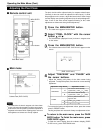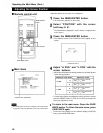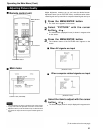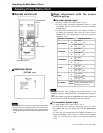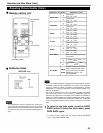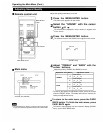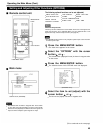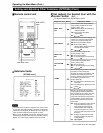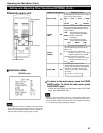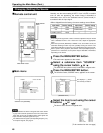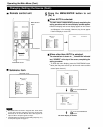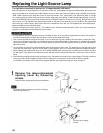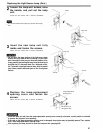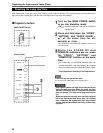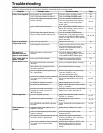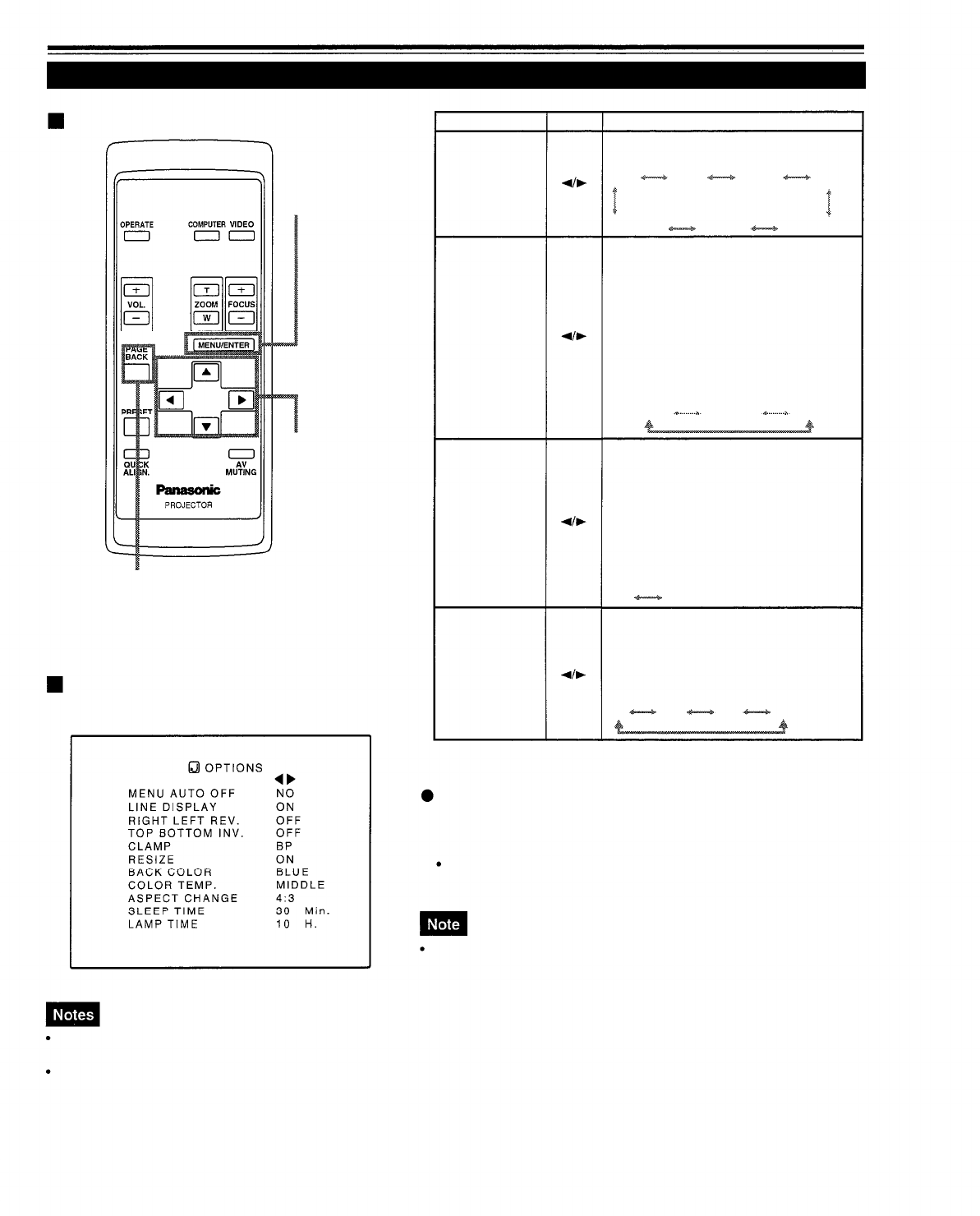
Operating the Main Menu (Cont.)
Setting and Adjusting Other Functions (OPTIONS) (Cont.)
Remote control unit
Adjustment item Button Adjustment content
MENU/ENTER
button
BACK COLOR
COLOR
TEMP.
Cursor buttons
ASPECT
CHANGE
PAGE BACK button
Submenu items
[OPTIONS menu]
SLEEP TIME
Sets background color when there is no input
signal. (Factory setting : BLUE)
BLUE CYAN BLACK GREEN
YELLOW
RED MAGENTA
Sets the color temperature of the video image
being projected. Make adjustment when the
image becomes reddish or bluish. (Factory
setting : MIDDLE)
LOW
:
Color temperature decreases
(video image becoming reddish).
MIDDLE
:
Results in middle color
temperature.
HIGH
:
Color temperature increases
(video image becoming bluish).
LOW MIDDLE
HIGH
Sets the vertical-to-horizontal ratio (4 : 3 or 16
: 9) of the video image projected. (Factory
setting : 4 : 3)
4 : 3 :
The aspect ratio of the screen
becomes 4 : 3. Set it to 4 : 3 for video
of NTSC, NTSC4.43, PAL, SECAM.
16 : 9:
The aspect ratio of the screen
becomes 16 : 9. Set it to 16 : 9 for Hi-
Vision devices (W-VHS VCR, etc.)
4:3 16:9
Sets the length of sleep time which
automatically brings the projector into stand-
by state. You can select one of the following
sleep times : 10 minutes, 20 minute, 30
minutes, and 60 minutes. (Factory setting :
30 minutes)
10
20 30 60
To return to the main menu, press the PAGE
BACK button. To finish the main menu, press
PAGE BACK again.
To finish the menu display from the submenu display (OPTIONS
menu), press PAGE BACK twice.
When you view a conventional (normal) 4 : 3 video picture, which is not a
wide video picture, do not use the 16 : 9 mode. The upper and lower parts of
the picture will be invisible in that mode. View such an original video picture
in 4 : 3 mode, respecting the producer’s intention.
The selected item is shown in magenta color. Items shown
in gray color cannot be operated or set in the current mode.
Items to be set (adjusted) are different when AV signals are
input and when computer-system signals are input.
47



